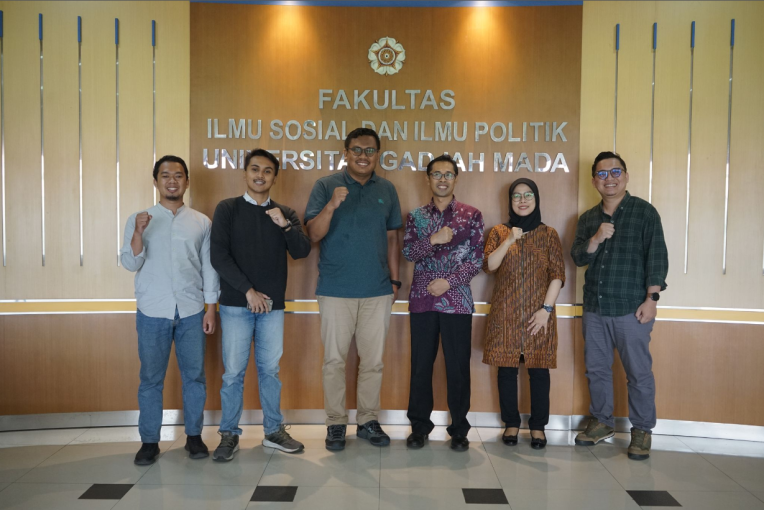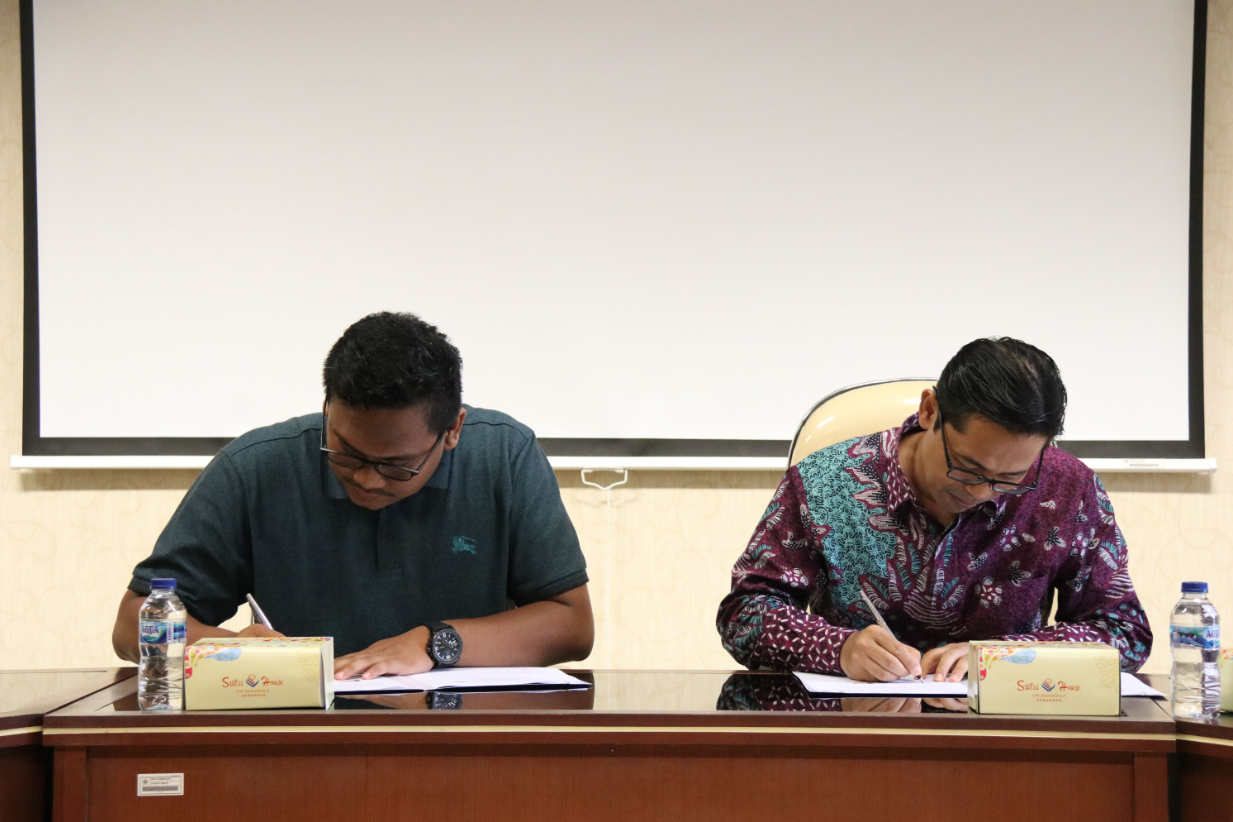
Yogyakarta, February 13th 2024─According to Wawan Mas’udi, Dean of the Faculty of Social and Political Sciences UGM, two aspects make the 2024 General Election different from previous elections. First, the absence of an incumbent or direct incumbent makes the electoral competition more heated. This condition is also accompanied by increased competition between parties. Second, there is a massive shift in the demographics of voters. Now, voters in the 2024 elections are dominated by voters under the age of 40. This has raised concerns regarding the younger generation’s awareness of politics and citizenship.
Departing from the two reasons above, FISIPOL UGM sees the urgency to provide political education for them. In addition to political education, FISIPOL UGM also feels the importance of encouraging young people’s participation in the electoral process. “We try to facilitate young people, especially our students, to get involved and become a direct part of the electoral process. Starting from participating as an organizing team, success team, to observers or monitors,” Wawan explained.
Through various dialogues conducted with the General Election Supervisory Agency (Bawaslu) and the General Election Commission (KPU), FISIPOL UGM realized that many aspects must be carefully prepared to become a monitor. In response to this, FISIPOL UGM collaborates with the civil society group Komite Independen Sadar Pemilu (KISP), an election monitoring institution accredited by Bawaslu as well as a Non-governmental Organization (NGO) observing elections and democracy, to help facilitate students as volunteer monitors. The strategic program designed includes Merdeka Belajar Kampus Merdeka (MBKM) activities for student participation in elections, research collaboration, and community service. The collaboration between the two parties was marked by the signing of a cooperation agreement on Tuesday (13/2) at the Faculty of Social and Political Sciences UGM.

The short-term collaboration between FISIPOL UGM and KISP is intended to oversee the elections on February 14, 2024, but is expected to continue in the long term, not stopping when the 2024 election process is over. Wawan feels it is important to continue to promote political education after the election. This can be done through discussion forums for the development of learning content, especially for young people, through platforms owned by FISIPOL UGM.
